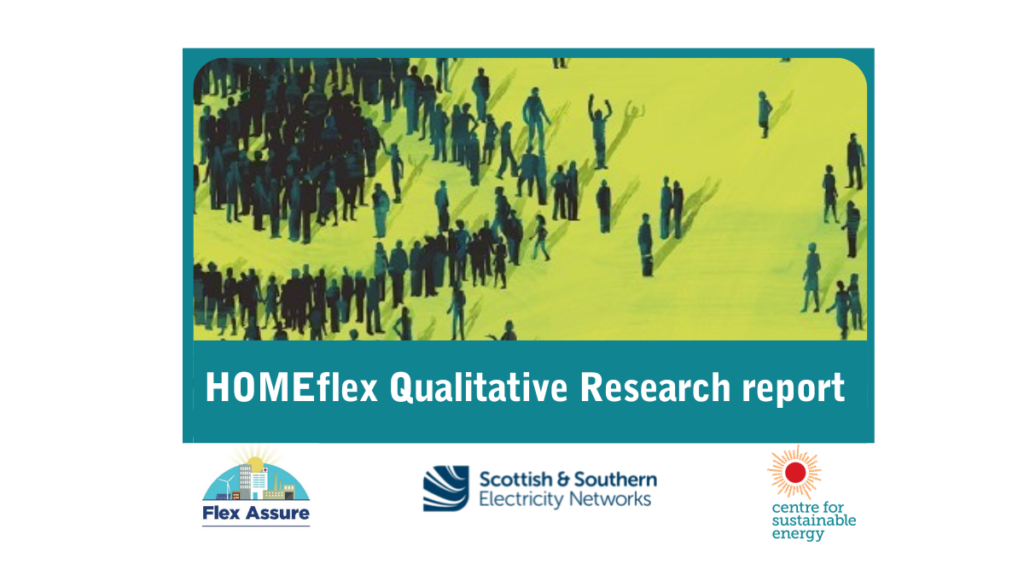The HOMEflex project, led by Scottish and Southern Electricity Networks Distribution (SSEN), has published a report into required standards for the domestic flexibility market to inform the development of a Code of Conduct, which will ensure consumer protection keeps abreast with market innovation.
The flexibility market is gaining popularity as the National Grid ESO ran its first live Demand Flexibility Service (DFS) at the beginning of this week. The latest DFS (the 11th) took place this Tuesday (24 January). There are now 26 DFS providers in total.
According to a report by Ofgem and the Department for Business, Energy & Industrial Services (BEIS) if Demand Side Response could reduce peak demand by 15GW by 2050, it could save £50 billion in future system cost.
Despite these forecasted benefits, SSEN warns that the scope for domestic consumers to engage with the service is still in its infancy.
The Centre for Sustainable Energy (CSE) – one of the project’s partners – conducted qualitative research using focus groups made up of 19 participants to distinguish concerns and opinions surrounding the DFS.
One of the focus groups, which covered consumer concerns, raised a number of key worries including a lack of clarity surrounding the technicalities of the service, wariness in using services from unknown providers and some queries around the qualitative value of the service.
The second focus group gave feedback for the Code of Conduct draft and found that 17/19 (89.5%) voted that they were very or fairly confident in participating in a flexibility service after reading the draft – five more than the first focus group.
Overall, the report states that participants were positive about the Code of Conduct, believing it was a “great starting point.”
“The timeliness of this report is evident. Currently the National Grid ESO’s Demand Flexibility Service has 26 providers all using their own terms and conditions, offering different routes to sign up, and passing on different proportions of incentive to consumers. This creates a very complex market for domestic consumers to navigate. Our research will help industry and government think about the consumer protections needed as the UK domestic flex market develops. This will be vital to build consumer confidence in this growing market,” said Charlotte Johnson, head of research programmes at CSE.
HOMEflex – also supported by FlexAssure – is a two year project and has received £331,00 funding from the Network Innovation Allowance.
“The cost of energy crisis has propelled public interest in new products and services like domestic flexibility trading, which means we must work fast to ensure the rules are in place to support a fair, transparent marketplace. HOMEflex is listening to consumers to embed their concerns and priorities in a Code of Conduct that can offer structure and protection for all flexibility trading participants. The potential financial benefits of a smart and flexible energy system are considerable but without public confidence in the new market, they will remain unrealised,” said project manager for Homeflex at SSEN, Simon O’Loughlin.
“SSEN’s vision is for a just transition to net zero, in which everyone who wishes to participate, can do so with confidence. We are delighted to be working with our partners on the HOMEflex project to embed fairness in the net zero future.”






